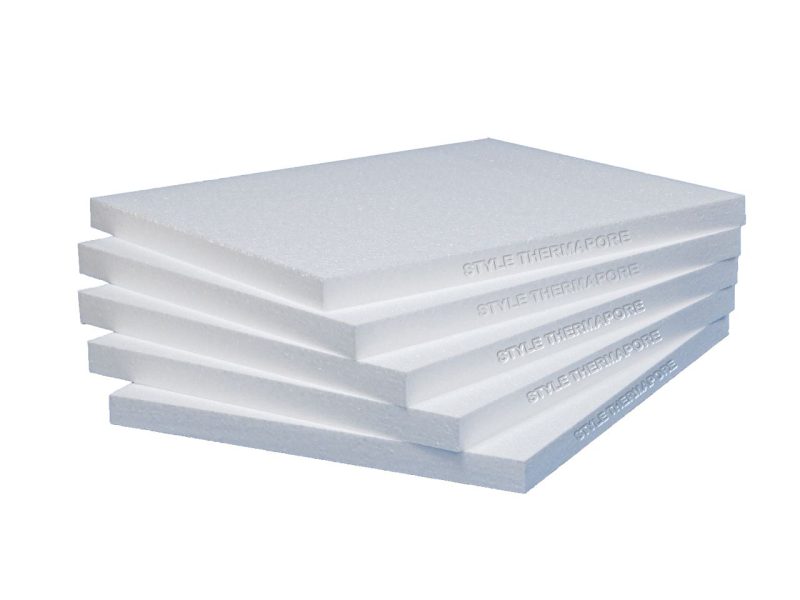
Thermopore EPS is a versatile insulation material known for its excellent thermal properties and environmental sustainability. Discover its benefits, applications, and diverse perspectives in this comprehensive article. Learn how EPS can contribute to sustainable building standards while reducing energy consumption, making it a valuable solution for insulation needs.
Introduction
The construction of energy-efficient buildings has become a necessity in today’s world. It not only reduces energy consumption but also contributes to a sustainable environment. One of the critical components of energy-efficient construction is insulation. Insulation acts as a barrier, preventing the transfer of heat into and out of the building. This is where Thermopore EPS (Expanded Polystyrene) comes in. It is a widely used insulation material known for its excellent thermal properties and versatility. This article will explore the various applications and benefits of Thermopore EPS, along with diverse perspectives on its use in different industries.
What is Thermopore EPS?
Thermopore EPS is a lightweight, rigid, and closed-cell insulation material made from expanded polystyrene beads. These beads are expanded and fused together to create rigid boards or blocks. These materials show excellent strength, durability, and mechanical properties.
Chemists derive EPS from a styrene monomer that dominates the bio-based monomers extracted from various sources such as algal biomass, lignocellulosic biomass, and waste plastics. Thermopore EPS effectively serves as a versatile insulation solution for a variety of applications.
Thermal Efficiency and Energy Savings
Thermopore EPS is renowned for its excellent thermal efficiency, which makes it an ideal choice for insulating buildings. EPS boards are an affordable, long-term, and effective way to insulate residential, commercial, and industrial buildings. According to a study by the Energy Tech Innovation Network, buildings that incorporate Thermopore EPS insulation can reduce energy consumption by up to 50%. This translates into significant cost savings for homeowners and businesses alike, as less energy is required for heating or cooling.
One of the key reasons for EPS’ superior thermal insulation properties is its cellular structure, which consists of closed cells filled with air. These cells prevent the transfer of heat by convection and conduction. This cellular structure results in a low thermal conductivity of 0.029 W/mK.
Environmental Sustainability Thermopore EPS
The environmental impact of insulation materials has become a significant concern in recent years. One of the main advantages of Thermopore EPS is its environmentally friendly nature. EPS is entirely recyclable and can be reused in the manufacturing process to create new insulation products. Moreover, EPS produces minimal greenhouse gas emissions during production, further reducing its environmental impact. It is also CFC and HCFC-free, which means that there is no threat to the ozone layer.
Additionally, EPS’s low thermal conductivity translates into less energy used for heating and cooling buildings. This reduced energy consumption lowers the carbon footprint, leading to reduced greenhouse gas emissions.
A report by the Green Building Council indicates that the use of Thermopore EPS can contribute to achieving sustainable building standards, such as LEED certification. LEED stands for Leadership in Energy and Environmental Design, a building rating system created by the United States Green Building Council (USGBC). The goal of LEED is to provide a framework to guide the design, construction, and operations of buildings, ultimately contributing to a sustainable environment.
Versatility and Durability Thermopore EPS
Thermopore EPS is praised for its versatility and wide range of applications. EPS is lightweight and durable, which makes it suitable for use in both residential and commercial buildings. It can be easily moulded or cut into various shapes and sizes, allowing for customized installation in different construction projects. From roofing and wall insulation to foundation and floor insulation, Thermopore EPS proves to be a flexible solution for all insulation needs.
Another advantage of EPS is its durability. EPS can withstand continuous loadings without permanent deformation and deformation under low stresses. Therefore it can withstand extreme weather conditions, which makes it an ideal material for insulation.
Diverse Perspectives on Thermopore EPS
Although people widely recognize the advantages of Thermopore EPS, it is important for us to actively consider diverse perspectives in order to gain a well-rounded understanding of its use.
Critics argue that the production of EPS requires significant amounts of fossil fuels and contributes to plastic waste. However, proponents believe that the long lifespan and recyclability of Thermopore EPS offset these concerns. They argue that proper waste management and recycling programs can mitigate any negative environmental impact.
The government’s involvement in promoting policies towards the use of bio-based and organic materials in building and construction would foster the development of biodegradable construction materials derived from agro-waste, which is potentially more environmentally friendly without compromising the durability and mechanical properties of construction materials.
Conclusion
In conclusion, it offers numerous benefits as an insulation material, including exceptional thermal efficiency, environmental sustainability, versatility, and durability. Its ability to reduce energy consumption and contribute to sustainable building standards has made it a popular choice in various industries. Despite some criticisms surrounding its production and waste management, Thermopore EPS remains a valuable solution for insulation needs. The development of biodegradable construction materials sourced from agro-waste would augur well in balancing construction materials’ durability and environmental-friendliness.
